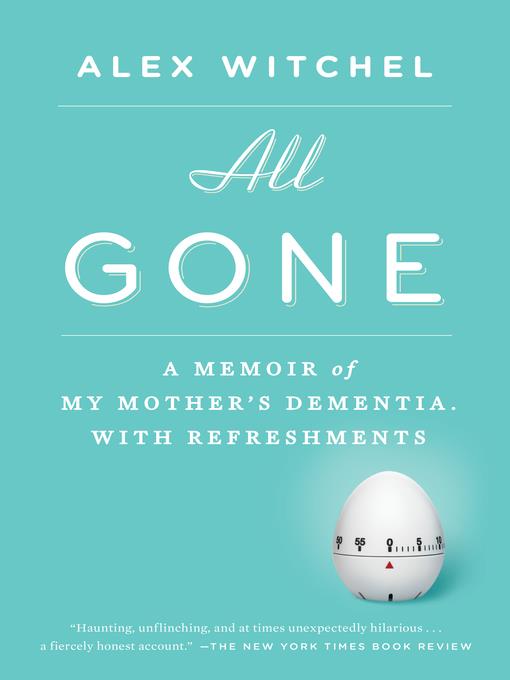
All Gone
A Memoir of My Mother's Dementia. With Refreshments
کتاب های مرتبط
- اطلاعات
- نقد و بررسی
- دیدگاه کاربران
نقد و بررسی

July 23, 2012
New York Times Magazine writer, columnist, and novelist Witchel saw her mother descend into uncharacteristic forgetfulness and lethargy in the mid-2000s, prompting the author’s rueful, occasionally vitriolic rumination on childhood and familial relations. Growing up in Passaic, N.J., in a mostly nonreligious Jewish community, before moving to Scarsdale (at age 12) as her dad moved up at his Madison Avenue job, Witchel recalls an uneasy “bomb-shelter mentality” pervading their house in the late 1950s and 1960s, a love affair with synthetic food products like Bac-Os that translated into comforting Jewish menus she still loves to cook and for which she offers recipes: meatloaf with cornflakes, frankfurter goulash, fried meat kreplach, and so on. Witchel adored her cerebral mother, who got her doctorate in psychology later in life, teaching for three-plus decades at Iona College, although she was often absent from home, earning the wrath of her husband, Witchel’s father, whose criticism of his daughter’s writing early on convinced her she had no talent. Witchel’s close bond with her mother, described as evolving from helper to lawyer to bodyguard, meant Witchel was stricken personally by her mother’s aging condition, receiving her forgetfulness as a personal failure and betrayal. Being the good daughter only went so far, and Witchel bares her distress frankly in this thin, taut contribution to the growing body of literature devoted to the toll of parent-care.

August 1, 2012
A journalist's bittersweet memoir about coping with her mother's dementia by preparing her mother's recipes. When New York Times Magazine food columnist and novelist Witchel (The Spare Wife, 2008, etc.) discovered her college-professor mother was ill with dementia, she was shocked. The woman who had successfully managed to juggle marriage, motherhood and a career had also hidden her deteriorating health from her family. Witchel was suddenly forced into the position of becoming a parent to a stubborn, strong-willed mother and watching her begin "the tortuous process of disappearing in plain sight." Overwhelmed by this role-shift and the changes it brought into her life, the author sought comfort by making the meals her mother once prepared for the family, such as meatloaf, spaghetti, roast chicken and potato latkes. Childhood memories came flooding back. Witchel remembers her mother as a gifted woman who defied both familial and social expectations to construct a professional identity for herself; as an individual who "lived her life as an act of will," was the dominant force at home and expected nothing but the best from her children. Her father may have been "the ultimate authority," but it was her mother who "ran the show." She was also the person who guided her daughter toward the love of gastronomy that would eventually find expression in Witchel's work as a journalist. Warm and always humane, Witchel's narrative is a poignant, candid reminder of the new normal that now defines so many adult child-aging parent relationships.
COPYRIGHT(2012) Kirkus Reviews, ALL RIGHTS RESERVED.

























دیدگاه کاربران